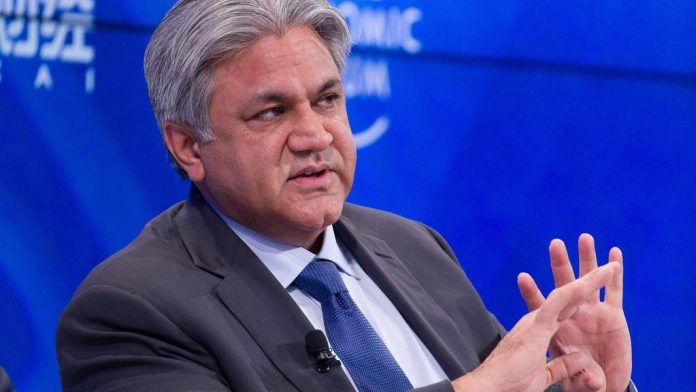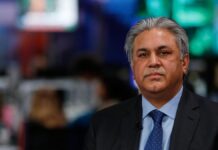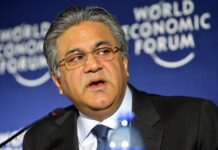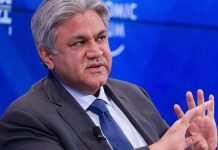
BACKGROUND
The Abraaj Group founder Arif Naqvi since its inception in Dubai in 2002 led the company to stardom and converted it into one of the largest emerging market private equity firm in the Middle East and North Africa.
At end of June 2017, Abraaj had over 200 offices scattered in five international hubs which include Singapore, Istanbul, Nairobi, Mexico City and Dubai.
During its peak, the company’s investments ranged from healthcare and education, financial services, consumer goods and services, industrials and materials and logistics.
In Pakistan, Abraaj owned K-Electric which it acquired in 2008 and then divested to Shanghai Electric Power Company in second-half of 2016 for $1.77 billion.
The K-Electric deal has faced numerous delays because of tariff disputes and other issues which blocked the release of funds.
Abraaj expects it will soon complete the disposal of its holding in K-Electric.
However, the journey of smashing success hit roadblocks in February when the company was accused by its leading investors; the Bill and Melinda Gates Foundation, the World Bank’s International Finance Corporation (IFC) unit, and government-backed development finance organisation’s CDC Group PLC of misusing $200 million from its $1 billion healthcare funds intended for use in developing economies of Pakistan, India and Nigeria.
The group was broken into Abraaj Investment Management Ltd (AIML) and Abraaj Holdings in late February.
An internal audit conducted by KPMG gave a clean chit to the company but Abraaj was compelled to return capital to a new fund and stopped fresh investments in wake of organizational restructuring and geared up to introduce new robust internal controls.
In mid-April, reports surfaced the company had hired the services of big four accountancy firm Deloitte to investigate its business, which included its $1 billion healthcare fund which had been the centre of controversy since February.
The leading investors had voiced concerns over the hurriedly conducted audit by KPMG of Abraaj’s healthcare fund and demanded another audit be conducted to verify if there had been any misuse of funds.
Also, KPMG was said to be undertaking an internal review into its audits of the world’s largest emerging private equity house.
KPMG forms part of the “big four” accountancy and audit firms globally and its UK branch is investigating its Middle East division for any potential irregularities in the valuation of assets of Abraaj and its linked entities.
Since then, Abraaj has been on a downward spiral and faced a litany of issues pertaining to its investment arm, business practices and various other problems that have culminated in it filing for provisional liquidation.
On Monday, the court in the Cayman Islands in response to a petition filed by Abraaj appointed PwC as provisional liquidator of Abraaj Holdings and Deloitte as provisional liquidator of Abraaj Investment Management Limited.
Arif Naqvi’s message to “friends of Abraaj” and employees
Arif Naqvi in a message sent to “friends of Abraaj” and employees last week said:
“As you have seen in the press these last few months have been extremely difficult for all of us at Abraaj. As an important stakeholder in our ecosystem, I wanted to bring you up to date personally on where we stand.”
Naqvi shared his experience of founding Abraaj and how it grew over a period of time:
“Let me first state that when I founded Abraaj in Dubai in 2002, I never thought this business would end up spanning the globe to become a leading investor in growth markets. On the other hand, I did see the opportunity to create a company that could unlock value in fast-growing but often overlooked, markets whilst delivering compelling returns for investors.
Giving insight into his company’s journey, Naqvi said “As I look back, I can see Abraaj’s track record as a testament to this mission and I hope you can too. Together with many talented professionals, we built a global business and successfully deployed private capital in some of the fastest growing regions of the world and in sectors that are transformative for the economy and the middle-class community that powers it – be that in education, healthcare, financial services, or infrastructure. We have created jobs, built soft and hard infrastructure and expanded life-sustaining services to reach a multitude of individuals and families.”
Addressing his employees, he added: “As we deployed and returned capital to our investors we also gave back to the communities that we touched through our time, partnerships and corporate philanthropy – many Abraaj employees participated in mentoring entrepreneurs, speaking in classrooms, or raising funds for special causes – as we did most recently for young Afghan kids needing heart surgery.
Talking about his experiences of working alongside various NGO’s and entities at Abraaj, Naqvi elaborated “We worked alongside amazing NGO’s and organizations helping them scale their delivery systems and guiding their progress into our markets for maximum impact in the spheres of employment, entrepreneurship, arts and innovation and healthcare. These actions did not meet unanimous support internally in Abraaj – yet this was an element of our culture that I was most proud of and never compromised on – we have touched the lives of hundreds of thousands of less fortunate people along our journey.”
He explained about the fallback of the accusations which roiled Abraaj in February: “Earlier this year gaps in our internal governance and operating procedures were discovered and as a result, we continue to navigate the business through very challenging circumstances. As you can imagine, the negative reports on Abraaj, many of which are out of context, have significantly damaged our Firm’s value and undermined the business at different points over the course of the last four months. Moreover, the way in which these factors (many of which were private) have all emerged as a matter of public record, has only aided to our loss of value.”
And he shared details about the interest expressed by various companies in buying its investment business: “In parallel, we have also received strong interest from potential acquirers for the operations of our fund management business, Abraaj Investment Management Limited (AIML). Talks are at an advanced stage and we continue to work together to achieve the most effective outcome for the firm.
(At the time of filing this report, Abraaj had divested some of the key funds in its investment business to Colony Northstar for an undisclosed price)
Naqvi shared the impact these allegations had on its employees and tendered an apology: “The recent events have caused Abraaj employees and our stakeholders’ undeniable pain and turbulence for which I apologize unreservedly.
Furthermore, explaining the media coverage over the last few months, Naqvi said “Despite all the rumours and briefings against us, and me personally, to my knowledge there was no intentional wrongdoing. In retrospect, however, I think things could have been done differently, and we might not be where we are today.”
He affirmed his belief in Abraaj and told “It is my strong belief that at its core, Abraaj has a deep team of experienced leaders and talented employees, many of whom have grown through the ranks over the last 16 years. There is great potential to take this platform forwards.”
He offered his gratitude to those who had worked with him and had been a part of the journey at Abraaj “I want to salute all those who have been part of this journey with me – and you are one of those. It has been a privilege for my colleagues and to work with you and your organizations in trying to make this world a better place. I certainly plan on continuing this journey and hope that our paths cross again in the future.”







I know nothing of this saga, but I worked for Mr. Naqvi for a number of years and believe him to be absolutely honest and trustworthy. He is demanding of his employees, but also very fair, kind and generous. A fine gentleman. No doubt in my mind that there was no intentional wrongdoing by him. His reputation meant everything to him.
Comments are closed.